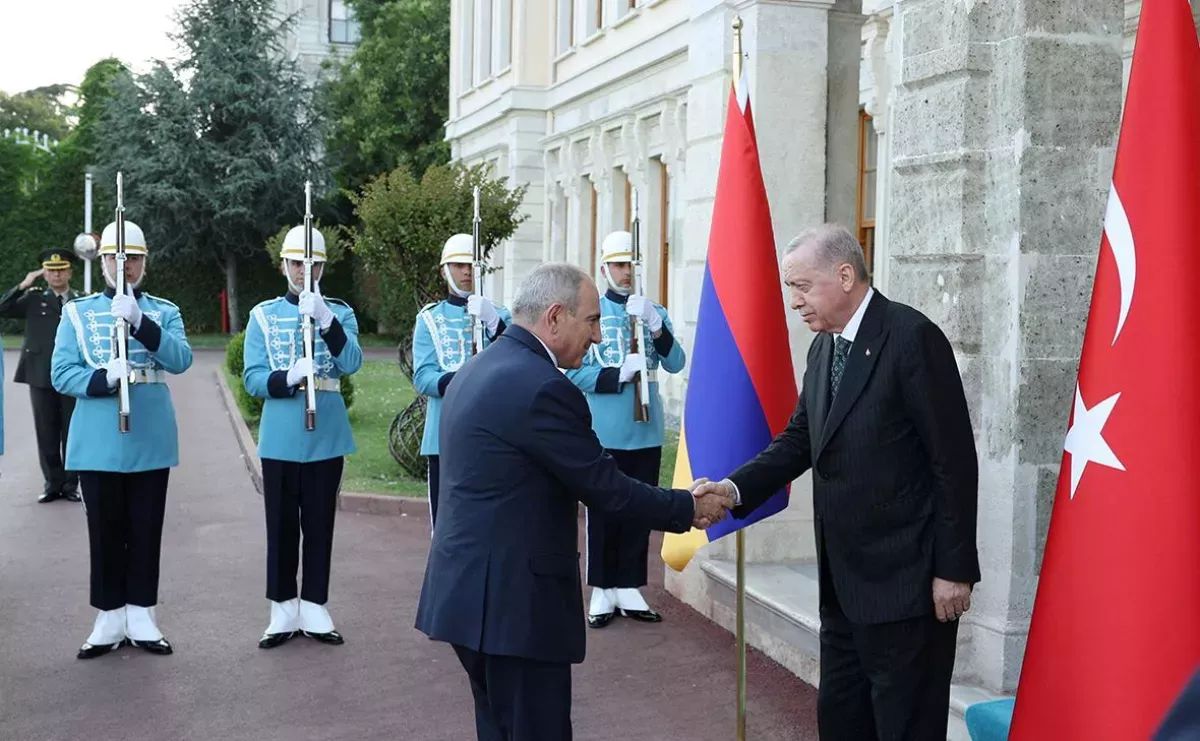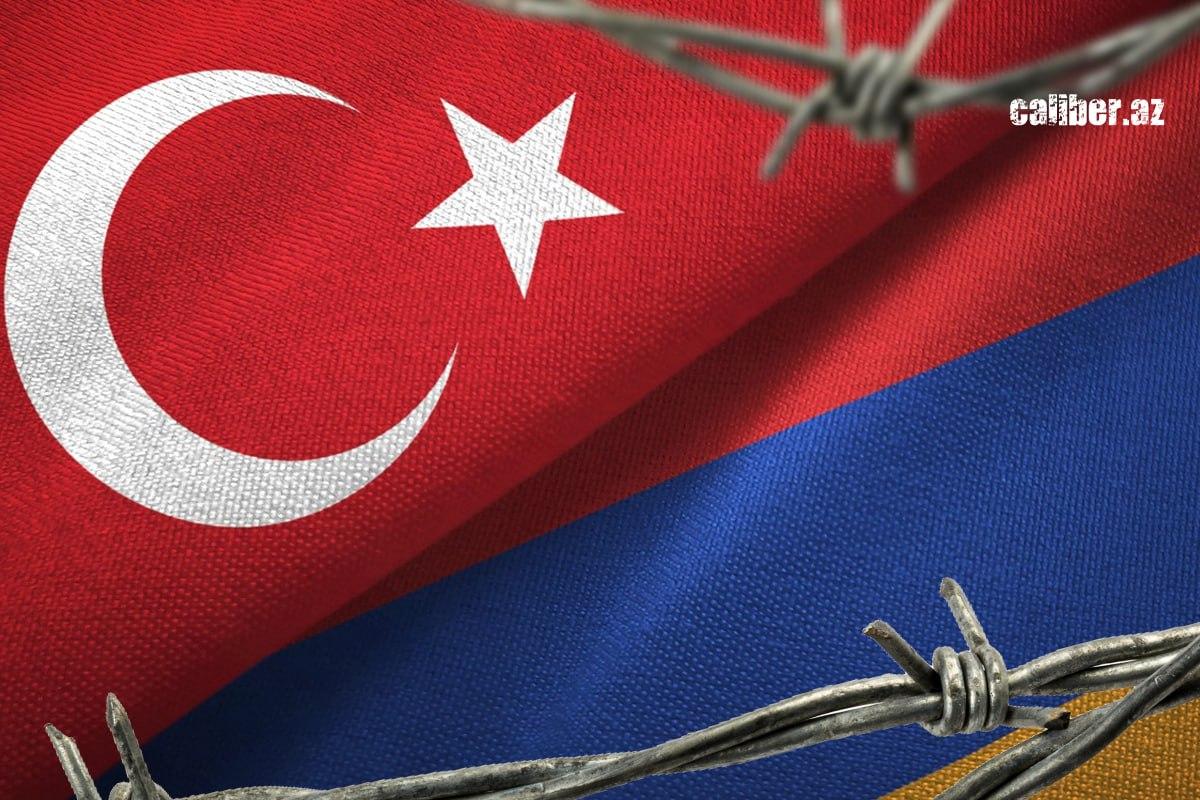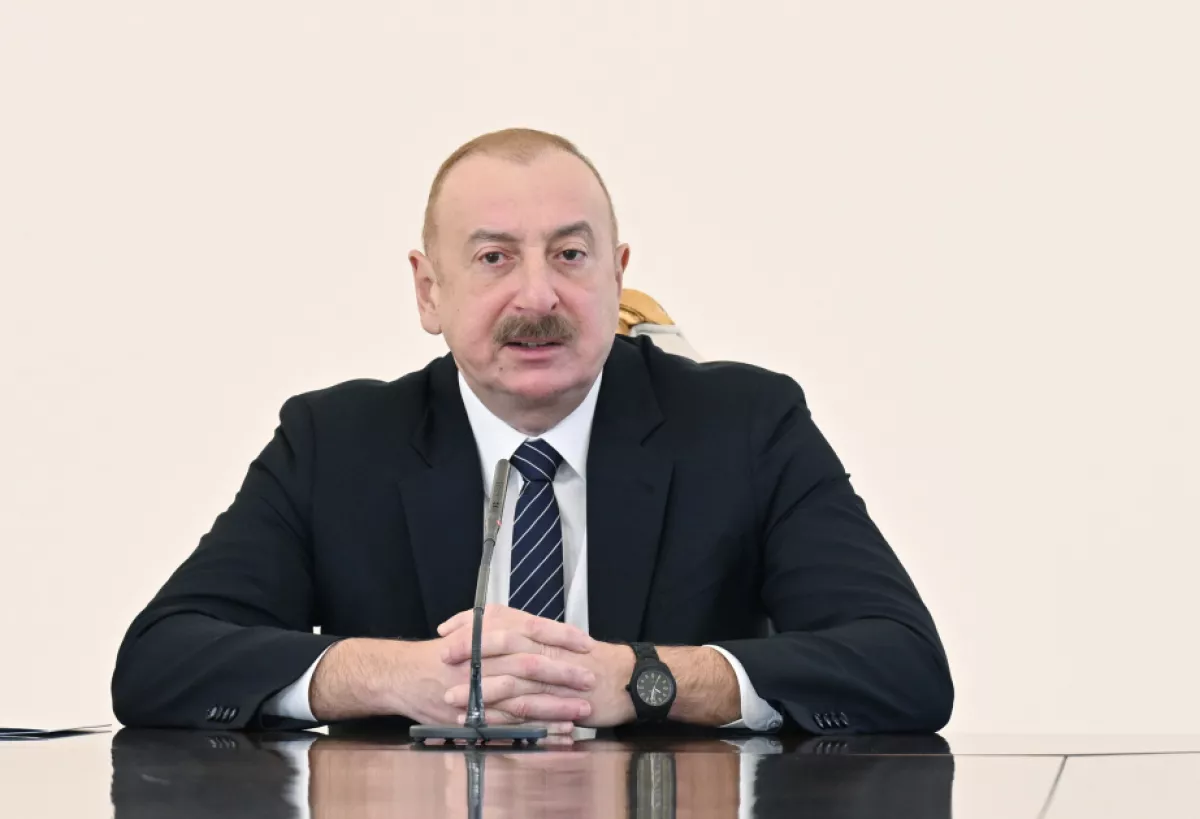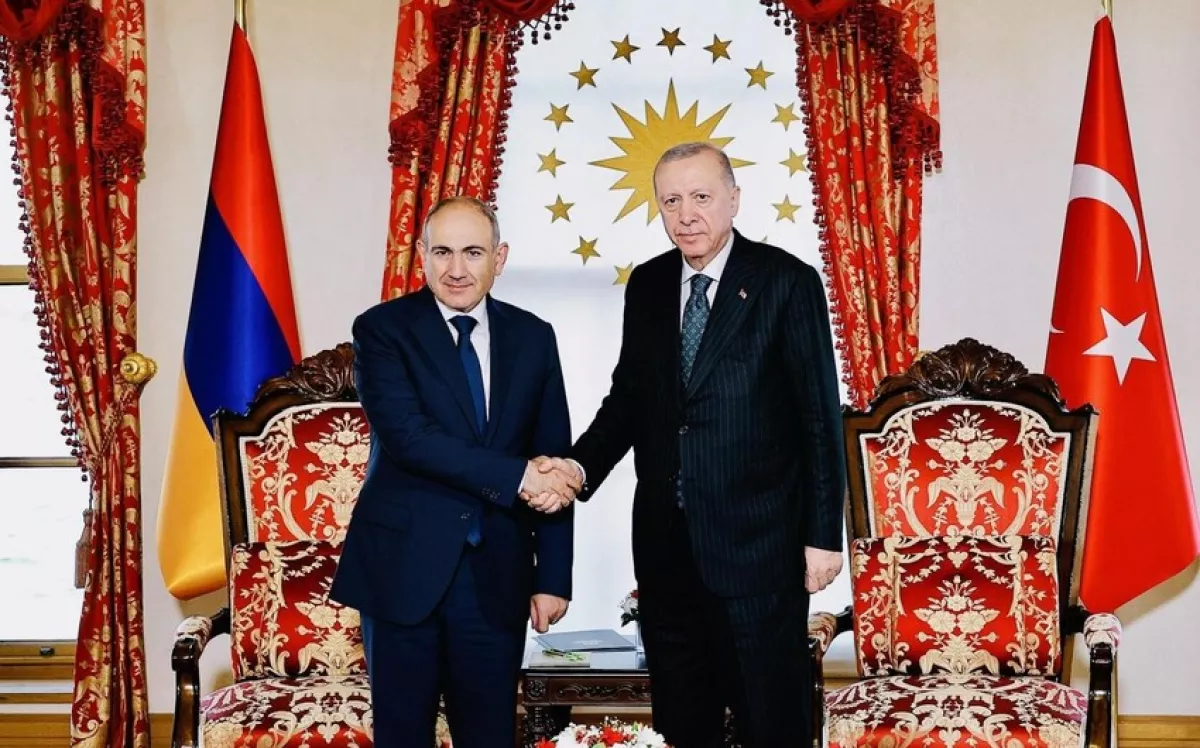Armenia-Türkiye normalisation still a long way off A visit behind the veil of fog
On June 20, the Prime Minister of Armenia paid a working visit to Türkiye. Despite the limited official information regarding the purpose and outcome of the visit, it has sparked intense discussion within Armenia’s domestic political scene and among expert circles. Speaker of the Armenian Parliament, Alen Simonyan, described the event as “historic,” stating that it marked “the first visit of an Armenian leader to Türkiye at this level.” The Armenian government, in turn, noted that Nikol Pashinyan’s visit to Türkiye was necessary not only for normalising relations with Ankara — with whom Yerevan has no diplomatic ties — but also for the Armenia-Azerbaijan peace process.
The Armenian Prime Minister’s visit to Türkiye took place amid an ongoing power struggle in Yerevan. Nikol Pashinyan faces opposition from the Dashnaks, the Karabakh clan, the current leadership of the Armenian Apostolic Church led by Catholicos of All Armenians Garegin II, as well as certain forces in Russia that have become more active following the arrest of oligarch Samvel Karapetyan. Unsurprisingly, Armenia’s opposition reacted sharply to Pashinyan’s visit to Türkiye.
Aghvan Vardanyan, a member of parliament from the "Armenia" bloc, criticised the move, stating: “The brothers [presidents of Türkiye and Azerbaijan – ed.] will synchronise their watches, prepare the questions, and then send the one who once sat in a chair opposite the man in the armchair, next to an inverted Armenian flag.” He added, “Prime Minister Nikol Pashinyan’s visit to Türkiye threatens to bring painful consequences for Armenia.”

However, the Armenian Prime Minister’s working agenda turned out to be quite packed. Ahead of his talks with the Turkish leader, Pashinyan met with the local Armenian community and visited the Cathedral of the Holy Mother of God.
In the context of the Armenian leader’s visit to Türkiye, particular attention was drawn to his controversial remarks during the meeting with the Armenian community in Istanbul regarding both the Armenia-Türkiye and Armenia-Azerbaijan normalisation processes. Notably, the Prime Minister stated that the positions of Armenia and Türkiye were “close” on several issues, and he expressed support for the opening of an Armenian consulate in Türkiye: “Our goal is to establish diplomatic relations between Armenia and Türkiye and to open the borders, which would entail the opening of road and rail links between the two countries.”

By expressing Armenia’s readiness to open a consulate in the Republic of Türkiye, Pashinyan indirectly signalled that the establishment of a full-fledged embassy is not yet on the table. This cautious optimism likely stems from an understanding on the Armenian side that the establishment of comprehensive diplomatic relations with Türkiye will only be possible after normalising ties with Azerbaijan and fulfilling two key demands from Baku: the formal dissolution of the OSCE Minsk Group and constitutional amendments in the Republic of Armenia.
At present, however, Armenia appears to be limiting itself to declarative statements on this track — a tendency once again reflected in Pashinyan’s recent remarks on the Zangezur Corridor and the so-called “Crossroads of Peace” initiative.
“We have said there will be no Zangezur Corridor — there will be the ‘Crossroads of Peace.’ It is clear to me that the ‘Crossroads of Peace’ can become part of the Middle Corridor project; it fits within that logic. If Azerbaijan and Türkiye want to move across Armenian territory, then let them move. Is that a bad thing? We ourselves are proposing it within the framework of the ‘Crossroads of Peace’,” Pashinyan said.
These contradictory statements by the Prime Minister further confirm the duality of Yerevan’s policy and Pashinyan’s cunning evasiveness. Judging by his remarks, the Armenian side has not deviated from its previous stance on the opening of the Zangezur Corridor; it still opposes its implementation despite the demands of Baku and Ankara, instead offering the international community the so-called “Crossroads of Peace” as a substitute — a project that has faced sharp criticism from Baku multiple times.
For instance, in January of this year, Azerbaijani President Ilham Aliyev said at a transportation meeting: “They [Armenians] have come up with the so-called ‘Peace Crossroads’ project, and now there is not a single country in the world they have not shared this project with. However, this so-called project is not worth two cents without Azerbaijan, and we have repeatedly conveyed this to the Armenian side through various channels. If you truly want to implement this project, first of all, you should approach Azerbaijan. Because without us, it is just a piece of paper, and our terms are fair, grounded in international law and the obligations Armenia itself has undertaken.”

Absurd statements made by Pashinyan during his meeting with the Armenian diaspora in Istanbul served as yet another proof that Baku’s clear message was not fully understood by official Yerevan. In light of this, it can be concluded that no significant breakthrough was achieved in the Armenia-Türkiye bilateral relations during the talks between the two leaders.
Here, attention should be drawn to a very telling fact: on June 19, a day before Pashinyan’s arrival, Turkish President Recep Tayyip Erdoğan met with Azerbaijani President Ilham Aliyev in the Turkish city of Kahramanmaraş. During Aliyev’s visit, the “Azerbaijan” quarter in Kahramanmaraş was inaugurated — one of the largest recent international humanitarian projects. This visit by the Azerbaijani president was another clear signal to the Armenian authorities that Ankara’s official position remains unchanged: normalisation of Turkish-Armenian relations is possible only after a peace treaty is signed between Baku and Yerevan, which, of course, depends on Armenia fulfilling the two key demands from Azerbaijan mentioned earlier.
This stance was further confirmed by a statement from the Turkish president’s office issued following the Istanbul meeting between Erdoğan and Pashinyan.

“President Erdoğan highlighted the importance of the agreement reached in the peace negotiations between Azerbaijan and Armenia under the current circumstances. Erdoğan emphasised that Türkiye will continue to provide all possible support for efforts aimed at developing the region based on a mutually beneficial approach,” stated the Turkish president’s office.
However, considering the content of Nikol Pashinyan’s statements during his meeting with the Armenian diaspora in Istanbul, it is reasonable to conclude that resolving relations with Baku is not part of Yerevan’s immediate plans. As mentioned earlier, this effectively puts a definitive halt to the normalisation of Armenia-Türkiye relations in the foreseeable future.
That said, given Pashinyan’s adventurous nature, it would not be surprising if, during his meeting with the Turkish president, he expressed views on the peace agreement with Azerbaijan that differ significantly from Yerevan’s official stance.








